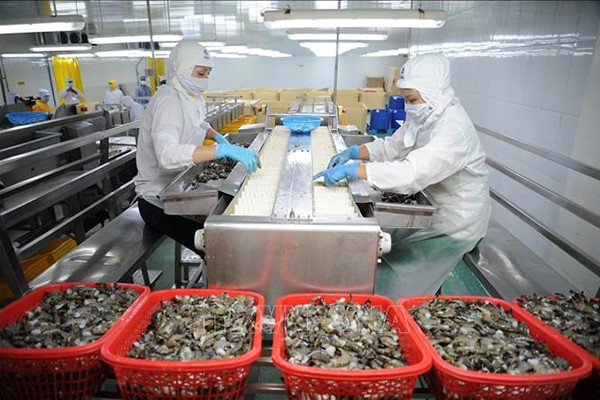The seafood industry has faced many trade remedies lawsuits abroad in recent years, although seafood industry is one of the main export groups of our country. As exports grow continuously thanks to the Free Trade Agreements (FTA) that Vietnam participates in, it is expected that this risk will be even greater in the coming time. Therefore, it is necessary for businesses to focus on investing in improving the capacity of trade remedies in order to avoid risks as well as protect legitimate interests in the market.
Vietnam holds the position of top 3 seafood exporting countries worldwide. The seafood industry still maintains its position with export turnover in 2021 estimated at 8.89 billion USD, which increase 5.7% compared to 2020 even in the complicated context of the Covid-19 epidemic.
According to the Trade Remedies Authority of Vietnam (Ministry of International Trade and Industry), seafood is one of the industries facing trade remedy cases investigated by foreign countries at the earliest. The US is the leading export market for Vietnam’s seafood products. Notably, so far, the US is the only country investigating trade remedies for Vietnam’s seafood industry, with 3 cases including: Anti-dumping investigation of Shutchi catfish, Yellowtail catfish in 2002; anti-dumping investigation of warm water shrimp in 2003 and investigation of shrimp anti-tax evasion and anti-dumping of Minh Phu Seafood Joint Stock Company.
Regarding the seafood sector, Mr. Le Trieu Dung, Director of the Trade Remedies Authority of Vietnam, said that out of a total of 5 dispute settlement cases filed by Vietnam at WTO, there are 4 cases related to Vietnam’s seafood industry. Up to now, our country’s seafood industry has undergone 18 anti-dumping tax investigations for Shutchi catfish and Yellowtail catfish and 16 anti-dumping investigations for warm-water shrimp. During the investigations, many Vietnamese Shutchi catfish and shrimp exporters were offered low tax rates (from 0 to 1%); however, some businesses have to pay high tax rates.
In fact, with the rapid export growth rate, seafood products often become the subject of foreign trade remedy cases. In the early stage, the seafood industry was still new to lawsuits and faced many disadvantages in the investigation of the import market. According to Mr. Nguyen Hoai Nam – Deputy Secretary General of the Vietnam Association of Seafood Exporters and Producers (VASEP), it is from the competition in the market, the seafood business community has also soon learned a lot about this issue.
Proactively prevent and respond
With rapid export growth, according to Mr. Le Trieu Dung, seafood easily becomes the subject of foreign trade remedy cases. Enterprises, VASEP, state management agencies continue to closely monitor developments in major export markets, especially the United States and focus on upgrading the management and development of the raw material industry to effectively exploit the commitment to integration… to be able to cope with the challenges and barriers of the export market in the field of trade remedies
According to agricultural expert Hoang Trong Thuy, the seafood industry needs to promote vertical linkages from farmers and fishermen to methodical processing, packaging and delivery areas as well as ensure product quality in accordance with international standards.
From the perspective of the industry, Mr. Nguyen Hoai Nam also said that enterprises must diversify the market to neutralize and limit trade remedies…

In order to provide relevant information and support associations, seafood enterprises, the Ministry of International Trade and Industry has actively monitored import and export data of shrimp and fish products, updated the legal regulations on trade remedies of the host country. Ministry of International Trade and Industry will continue to coordinate with relevant ministries, branches and associations to carry out the task of appealing, and conduct bilateral exchanges with agencies of the same level in the importing country in the coming time.
In addition, to contribute to supporting Vietnamese enterprises to promptly respond to lawsuits abroad as well as to protect the legitimate rights and interests of domestic enterprises, the Ministry of International Trade and Industry also requires countries to comply with WTO regulations when applying trade remedies.
ASL LAW is the top-tier Vietnam law firm for Anti-dumping & countervailing. If you need any advice, please contact us for further information or collaboration.

 Tiếng Việt
Tiếng Việt 中文 (中国)
中文 (中国)
